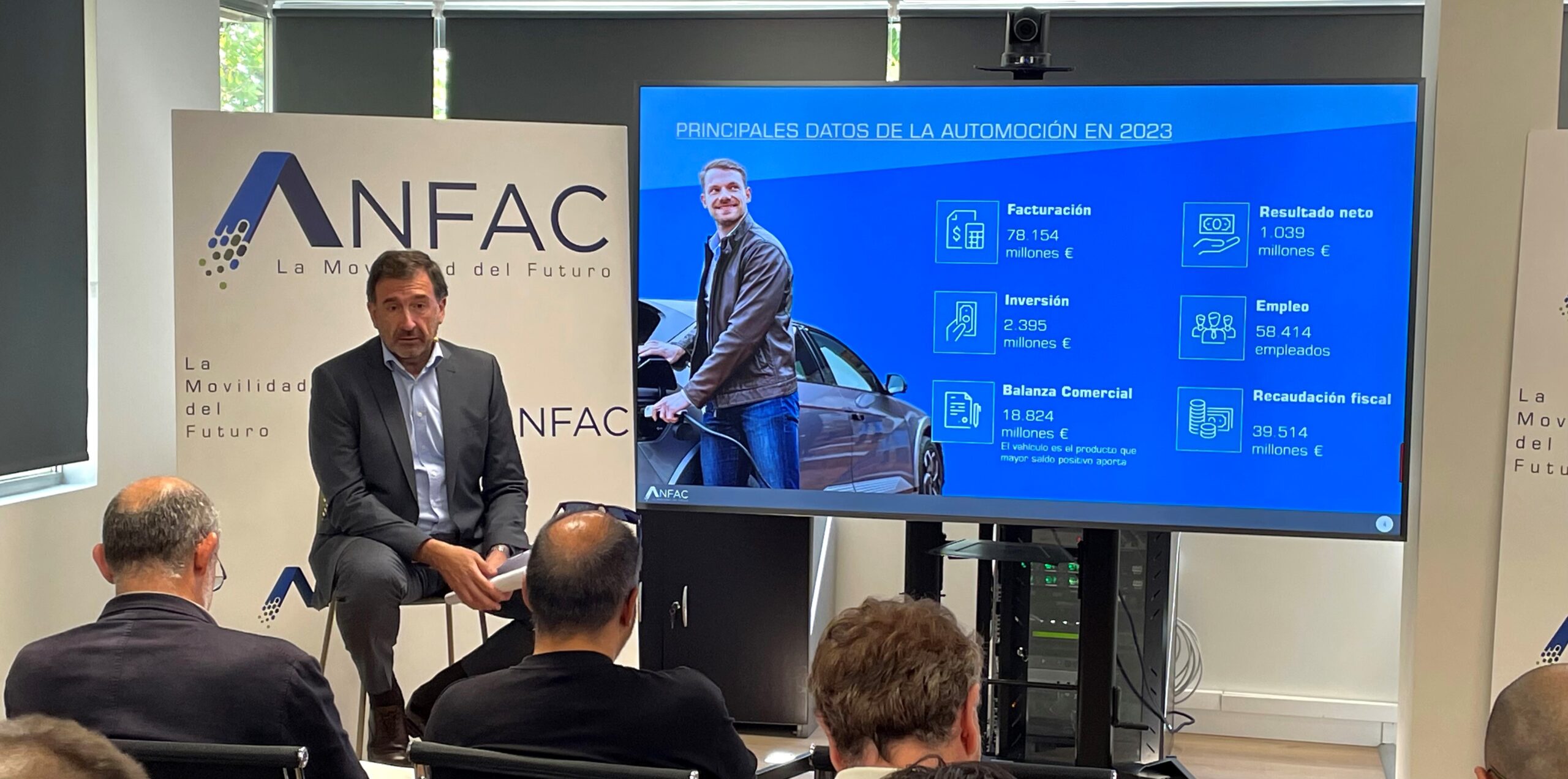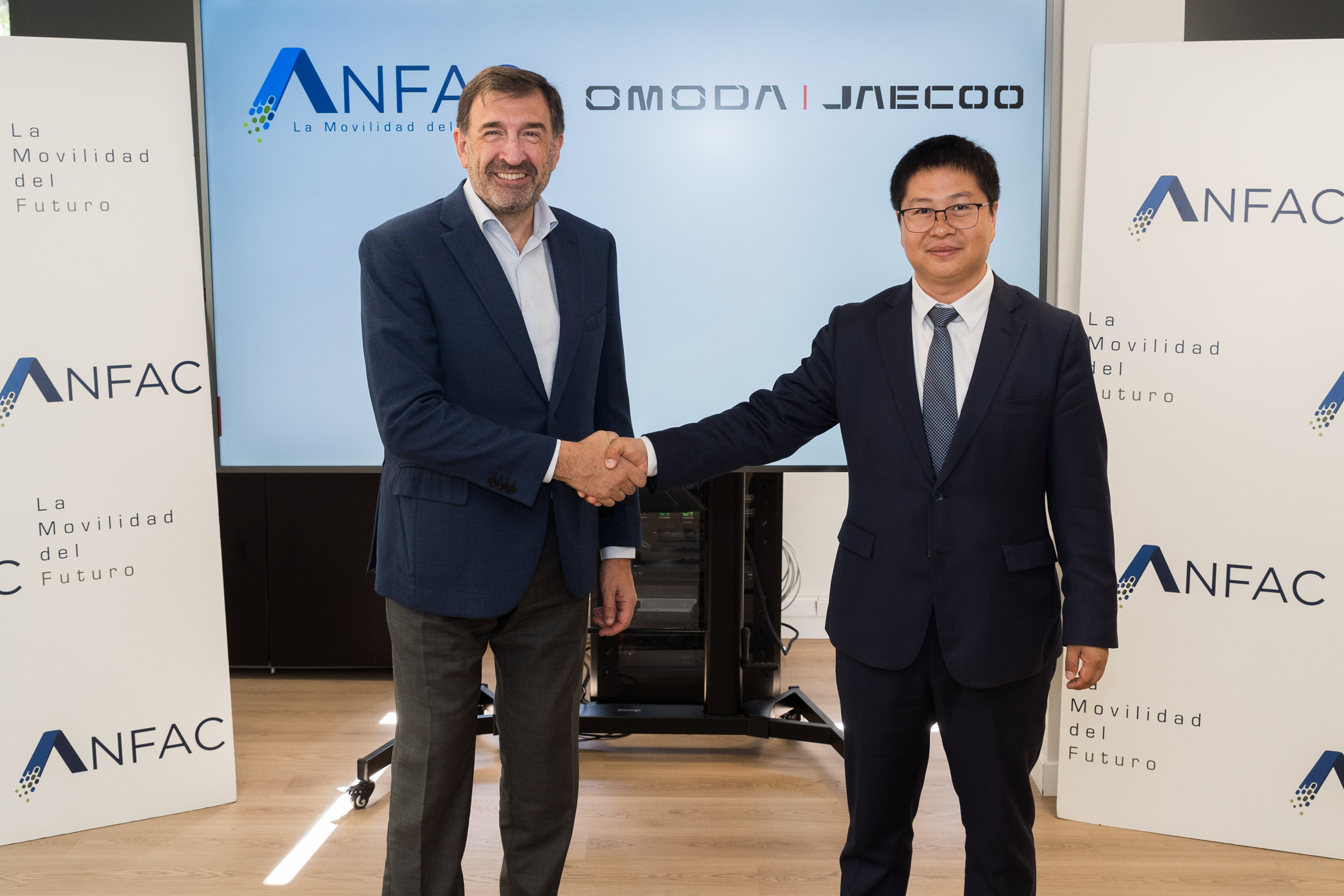- The automotive sector in Spain and Portugal has highlighted its role as driver of economic revival and as fundamental tool for the generation of safe and quality employment.
- Decarbonization and digitization targets are set as medium-term priorities for the automotive sector in the transition to new mobility.
- A commitment and a strategy by both countries is needed to address the recovery of production and demand affected by COVID-19 and the future of the sector in Europe.
Madrid, 8th October 2020. Within the XXXI Hispano-Portuguese Summit held in Guarda (Portugal), the Portuguese Automobile Association (ACAP), the Portuguese Manufacturers Association for the Automotive Industry (AFIA), the Spanish National Association of Cars and Trucks Manufacturers (ANFAC) and the Spanish Association of Automotive Suppliers (SERNAUTO), have highlighted the value of the automotive sector as strategic tool of Portugal and Spain to achieve the objectives for the economic recovery. They request to reinforce the commitment that the Governments of both countries had shown and define together a strategy that ensures the viability and durability of the automotive industry in its transformation towards a sustainable and emission-free mobility.
The joint declaration, signed by the presidents of the Spanish-Portuguese automotive associations mentioned above, highlights the crucial moment the sector is going through with the re-industrialization process to address the challenges of decarbonization and digitization associated to the new mobility industry. All this, in the context of the strong economic and industrial impact of the COVID-19 crisis on the sector and which has set new short-term objectives of recovering demand and production. Therefore, the four associations consider necessary the joint work and the commitment of administrations and governments, with the sector’s social partners, to restore pre-crisis levels and lead transformation by ensuring that the Iberian automotive sector can maintain its relevance and leadership in the future.
The automotive industry is an important strategic sector for the economy and employment in the Iberian region, being responsible for 11% of Spanish GDP and 6% of Portuguese GDP and generating 9% of employment over the working population in Spain and representing about 12% of Manufacturing industry employment in Portugal. In view of the forthcoming European Recovery Plan, the automotive sector needs significant financial support to ensure not only the recovery to pre-crisis levels, but greater sustainable growth of the sector and its role as engine for the other sectors of our economy, as well.
For this reason, the four associations urge Spanish and Portuguese governments to generate a closer cooperation and collaboration framework that, with a view to the European automotive-related policies, boosts the competitiveness of this industry. In addition, bilateral actions are requested to respond the needs of the sector and to promote a specific strategy and instruments in economic, labour, regulatory and investment matters, that provide strong support to the automotive industry, in line with its importance to the Iberian economy and its role as an important driver of economic recovery.
As highlighted in the joint declaration, the automotive sector is immersed in a process of transformation towards a new mobility that must be more efficient, sustainable, affordable, and accessible. It is therefore necessary to set the basis for building a strategy and action plan that responds to the transition to zero-emission mobility through financial and non-financial incentives, renewal of the vehicle fleet, development of a powerful recharging infrastructure, support for the development and implementation of autonomous and connected driving, a coherent roadmap for the development of future CO2 emissions standards and a homogeneous regulatory framework for freight transport between both countries. In line with the UE environmental and digital transformation objectives, enabling the automotive industry in Spain and Portugal to remain at the forefront of this transformation.
José Vicente de los Mozos, president of ANFAC, emphasized that «we are at a crucial moment in the automotive history. In the face of the new challenges, marked by the pandemic, but also by the new future mobility, we must take advantage of the recovery to boost the industry in Spain and Portugal, and to increase our competitiveness. The Iberian pole must be positioned as an attractive destination for industrial investments, but we can only achieve this with the commitment of all: governments, administrations, town halls, social agents, and society. That is why we are asking, together as a sector, for this joint work for the competitiveness and future of the Iberian automotive industry both bilaterally and in European policies».
María Helena Antolin, president of SERNAUTO, said that «Spain has a highly innovative and competitive ecosystem composed of more than 1,000 automotive suppliers and top-level technology centers. Its technological capacity has allowed us to attract all kinds of projects. Among all, we must guarantee the best working, fiscal, energy and logistics conditions to continue attracting investments to our country. Since competition is global, positioning ourselves as leaders is an imperative necessity for the Iberian market”.
José Ramos, presidente de ACAP, said that “It is of crucial importance, for our sector, that the portuguese government implement a scrapping scheme for old vehicles. Our car park, is one of the oldest in Europe, and this should be very important for the reductions of CO2 emissions and, also, for the recovery of the car market”.
José Couto, AFIA President, argued that “the automotive industry has a relevant importance both for Portugal & Spain economies, due to its ability to export, to create skilled jobs, to add value and have a catalytic effect on other sectors, specially as an inducer on the competitive capacity of the scientific ecosystem. It is therefore crucial to establish a framework that ensures a carefully managed transformation to successfully decarbonise and digitise the economy”.































































 Notas y comunicados generales
Notas y comunicados generales 


